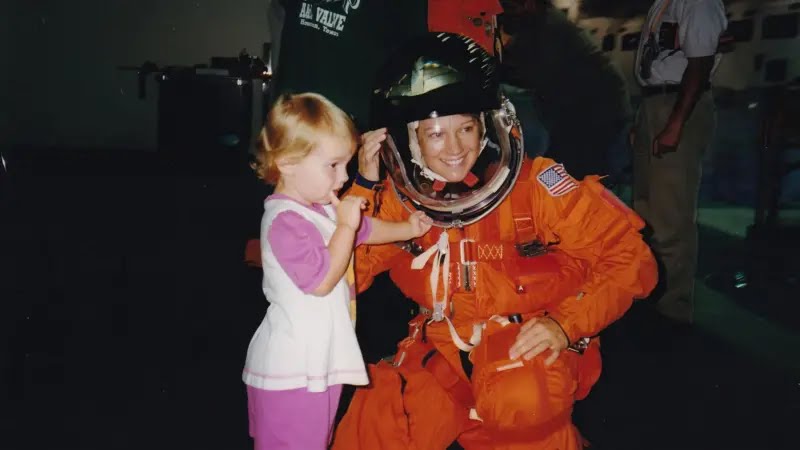In an eye-opening and deeply personal interview with the BBC, NASA’s trailblazing astronaut and Deputy Administrator Pam Melroy shared that commanding a space shuttle was easier than the unpredictable, emotional, and lifelong mission of raising children.
Melroy, one of only two women ever to command a U.S. space shuttle, reflected on her remarkable career and how motherhood tested her in ways that even space travel never could. “Flying a shuttle had risks, but it came with a checklist, a crew, and mission control support,” she said. “Parenting doesn’t have a manual. Every day brings new challenges and emotions you never trained for.”
Her statement instantly resonated with working parents across the United States and beyond. Social media platforms lit up with support, with many users praising her honesty and vulnerability — qualities often hidden behind the disciplined image of astronauts and scientists.
A Career Written Among the Stars
Born in 1961, Pamela Anne Melroy has built a legacy of breaking barriers. A former U.S. Air Force officer and test pilot, she logged over 6,000 flight hours in more than 50 different aircraft before joining NASA in 1994. In 2000, she piloted the Space Shuttle Discovery on mission STS-92, helping assemble key parts of the International Space Station (ISS). Seven years later, she commanded STS-120, leading a crew that continued the ISS’s expansion — a historic milestone that made her one of NASA’s most respected leaders.
Her leadership was marked not only by precision and discipline but also by compassion and calm under pressure. Former crewmates have described Melroy as “steady, clear, and deeply human” — traits that have served her well both in orbit and at home.
Lessons from Space Applied to Life on Earth
In her BBC interview, Melroy explained how experiences in space shaped her parenting philosophy. “Spaceflight teaches you teamwork, patience, and perspective,” she said. “When you look down at Earth from 250 miles above, you realize how connected everything is. That awareness helps in parenting too — understanding how every small action impacts your family’s bigger picture.”
She also drew parallels between mission control and family life: “On a mission, you face constant problem-solving and communication challenges. Parenting is the same — only, instead of astronauts, you’re guiding kids through life’s unknowns.”
Her reflections come at a time when more professionals in high-stress careers are speaking openly about work-life balance and emotional wellness. According to experts, Melroy’s perspective helps humanize the image of astronauts — showing that even those who’ve traveled to space grapple with the same fears, doubts, and joys as everyone else.
Dr. Laura McNeil, a psychologist who studies leadership under pressure, said, “When someone like Pam Melroy admits that parenting is harder than spaceflight, it sends a powerful message. It normalizes vulnerability and reminds us that emotional strength is just as important as professional excellence.”
Inspiring the Next Generation
Beyond her NASA achievements, Melroy has dedicated much of her career to inspiring young women to pursue science, technology, engineering, and mathematics (STEM). She continues to advocate for more diversity in aerospace and encourages young people to dream boldly — but realistically.
“You can aim for the stars,” she told the BBC, “but never forget the importance of what’s happening right at home. The most important mission isn’t always out there in space — sometimes, it’s in your living room.”
Her message aligns with NASA’s broader push to make space exploration more inclusive. Today, women make up a growing share of the agency’s astronaut corps, and the upcoming Artemis missions — aiming to return humans to the Moon — will feature the first woman and person of color to walk on its surface. Melroy has played a key role in advancing that vision, ensuring the next generation has both the tools and the inspiration to lead.
The Most Demanding Mission of All
Even after commanding space crews, facing zero-gravity emergencies, and helping shape U.S. space policy, Melroy says nothing prepared her for the emotional depth of parenting. “In space, every decision affects your crew. At home, every decision affects your children — and that’s far more personal,” she said.
Her candid admission offers a refreshing contrast to the perfection often associated with astronauts. It’s a reminder that strength lies not in appearing invincible but in embracing the full spectrum of human experience.
As Melroy continues to guide NASA’s next era of exploration, her legacy now extends beyond rockets and missions. It’s about redefining leadership — both in orbit and at home — with empathy, courage, and humility.

